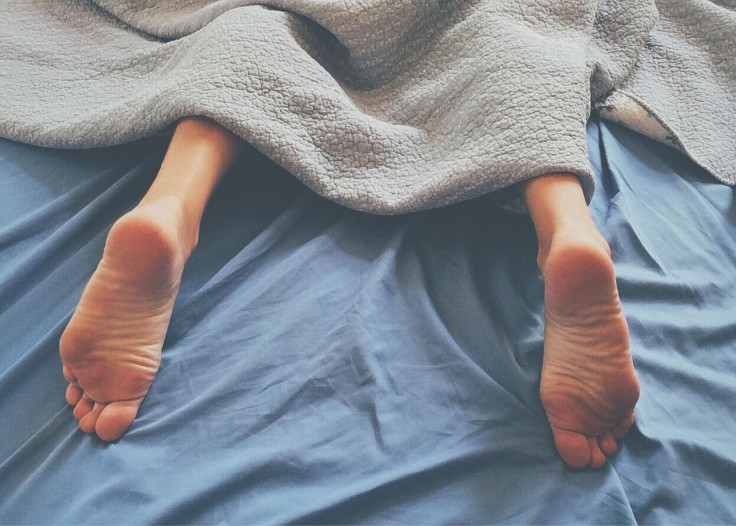People Habitually Short On Sleep May Have Advanced Brain Connections, Need Less Rest

Sleep experts recommend adults clock in between seven and nine hours of sleep each day, but according to a group of researchers from the University of Utah, some people just don’t need that much sleep. Their findings, published in the journal Brain and Behavior, reveal the possibility that “habitual short sleepers” could exist.
For the study, researchers examined the network of connections within the brain of 1,200 people using functional magnetic resonance imagine (fMRI) scans as they slept. Next, the group was divided into those who sleep six hours or less a night and those who slept more than six hours. The short sleepers were further divided into groups that felt too drowsy to perform common tasks or who struggled to express enthusiasm and those who felt they could function normally. Researchers found short sleepers had “enhanced connectivity” between where they process sensory information, the hippocampus, and memory.
"This is tantalizing evidence for why some people feel like they don't need to sleep as much," said the study’s co-author Jeff Anderson, a radiologist at the University of Utah, in a statement. "Maybe some brains are able to do what sleep does in little tiny epochs during the day.”
Short sleepers, or those who only need four to six hours of sleep each night in order to function normally, make up 30 percent of the U.S. population. According to the Centers for Disease Control and Prevention, when the typical person is sleep deprived, they become easily agitated, unintentionally fall sleep during wake hours, and increase the risk of developing chronic diseases, such as high blood pressure, type 2 diabetes, depression, obesity, and certain types of cancer. These predictable symptoms have led experts to believe humans need to get a set amount of sleep each night in order to function properly, however the recent findings have thrown researchers for a loop because short sleepers are exempt from the sleep rule.
"It's one of the most interesting questions in all science: Why do we sleep in the first place?" Anderson said. "It's incredibly disadvantageous to spend a third of our life asleep. There must be an important reason to do it, but why is still an active field of research.”
What experts do know is that sleep is important to let the working brain reboot. It’s a time when the brain can allow short-and long-term memories to form and store. Anderson explained short sleepers may be able to perform sleeping memory consolidation while they are awake, which reduces their need to clock in a couple extra hours each night. Either that, or short sleepers are briefly falling asleep throughout the day without realizing it. Researchers plan to continue experiments using fMRI machines in order to figure out the exact mechanics of the brain during sleep-wake cycles for habitual short sleepers and normal sleepers.
"Most people feel terrible when they get less than six hours of sleep," says study co-author Paula Williams, a psychology professor at the University of Utah, in a statement. “Two people can sleep the same amount and one person feels refreshed and one does not. What's the difference? Are there some people who can get away with less sleep? We don't know. Amazingly, we still don't know.”
Source: Anderson JS, Curtis NJ, Williams PG, and Jones CR. Sleep duration and resting fMRI functional connectivity: examination of short sleepers with and without perceived daytime dysfunction. Brain and Behavior. 2016.



























